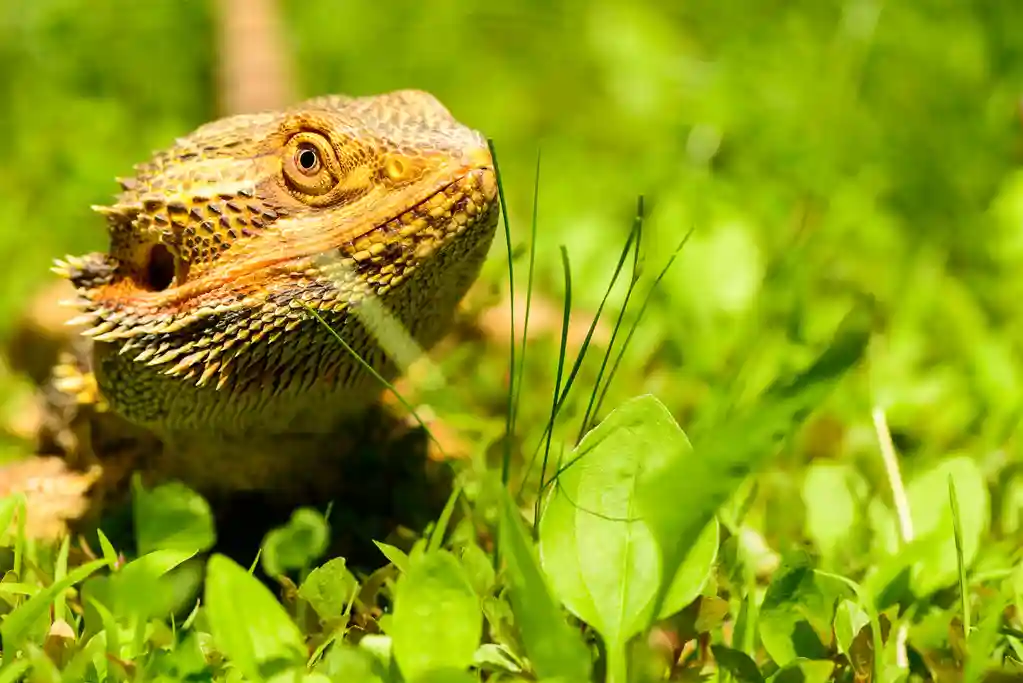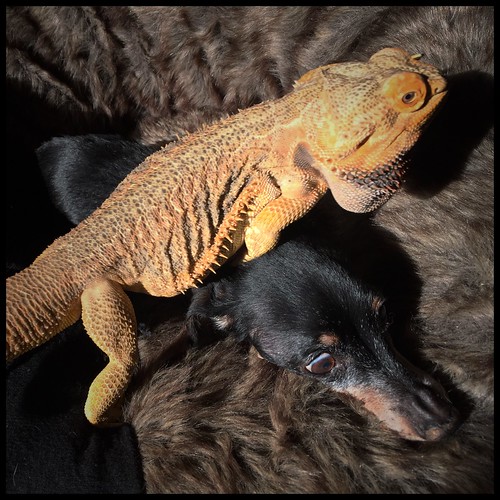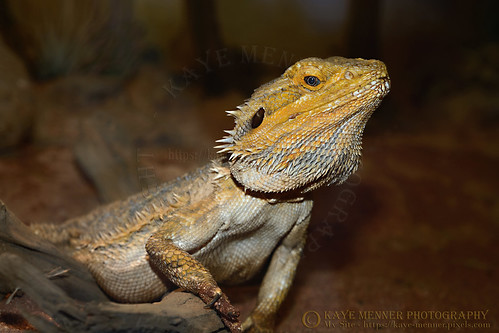Bearded dragons are charming, low-maintenance pets that have gained immense popularity among reptile enthusiasts. However, like any other living creature, these scaly friends can encounter some health issues. Among the most common and potentially serious conditions is bearded dragon impaction. In this comprehensive guide, we’ll delve into the causes, symptoms, and treatments of impaction, helping you ensure your beardie remains in tip-top shape.
A Stomach Full of Secrets: What is Bearded Dragon Impaction?
Bearded dragon impaction is a common health issue that affects these reptiles. Essentially, it’s a gastrointestinal blockage caused by ingesting indigestible materials or substances too large to pass through the system. The blockage leads to discomfort, pain, and potentially severe health complications if left untreated.
The Usual Suspects: Common Culprits of Bearded Dragon Impaction
Impaction in bearded dragons can be caused by various factors, including:
- Ingesting loose substrates, such as sand or gravel, while hunting for food.
- Consuming indigestible materials, like small rocks or bark.
- Eating prey items that are too large or have hard exoskeletons, such as super worms or mealworms.
The Risky Business: Factors Increasing the Chances of Impaction
Certain conditions can increase the likelihood of impaction in bearded dragons, including:
- Inadequate temperatures in their enclosure, affect their digestion and metabolism.
- Insufficient hydration, leads to dehydration and hardening of the feces.
- A diet lacking in fiber or an imbalanced calcium-to-phosphorus ratio.
The Tell-Tale Signs: Recognizing Impaction in Your Bearded Dragon
Physical Manifestations: Symptoms to Look Out For
Signs of impaction in your bearded dragon may include:
- Swollen or bloated abdomen.
- Struggling or inability to pass feces.
- Dragging their hind legs or experiencing paralysis.
Behavioral Changes: Your Beardie’s Cry for Help
In addition to physical symptoms, impaction can cause behavioral changes in your bearded dragon, such as:
- Lethargy or decreased activity levels.
- Loss of appetite or refusal to eat.
- Agitation or visible signs of discomfort.
Calling in the Cavalry: Treating Bearded Dragon Impaction
Home Remedies: Simple Solutions for Mild Cases
For mild cases of impaction, you can try the following home remedies:
- Warm Baths: A Relaxing and Effective Treatment – Giving your bearded dragon a warm bath can help relax their muscles and stimulate bowel movements. Fill a shallow container with warm water (around 85-90°F), and let your beardie soak for 10-15 minutes while gently massaging their abdomen.
- Gentle Massages: Stimulating Movement and Relief – Using your fingertips, gently massage your bearded dragon’s abdomen in a downward motion, applying light pressure to encourage the blockage to move through their system.
- Dietary Adjustments: Balancing Your Beardie’s Diet – Increase the amount of fiber in your bearded dragon’s diet by providing more leafy greens and vegetables. Also, ensure a proper calcium-to-phosphorus ratio by dusting their food with a calcium supplement.
When to Seek Professional Help: Signs Your Beardie Needs a Vet
If your bearded dragon’s condition does not improve after trying home remedies or if their symptoms worsen, it’s time to consult a reptile veterinarian. Signs that indicate the need for professional help include:
- Persistent or worsening paralysis in the hind legs.
- Severe bloating or visible pain.
- Prolonged loss of appetite or weight loss.
Prevention is Better than Cure: Avoiding Bearded Dragon Impaction
To prevent impaction in your bearded dragon, consider the following measures:
The Ideal Environment: Creating a Safe and Comfortable Home
- Use a suitable substrate, such as a reptile carpet or newspaper, to minimize the risk of accidental ingestion.
- Maintain proper enclosure temperatures (basking area around 100-110°F and cooler area around 75-85°F) to support healthy digestion.
The Balanced Diet: Ensuring Nutritional Harmony
- Offer appropriately sized prey items to avoid ingestion of large, hard-to-digest food.
- Provide a varied diet with sufficient fiber, such as leafy greens and vegetables.
- Monitor calcium and phosphorus intake to maintain a healthy balance.
Regular Checkups: Keeping a Watchful Eye on Your Beardie’s Health
- Observe your bearded dragon’s behavior and physical condition regularly to detect any changes that may indicate impaction.
- Weigh your beardie routinely to monitor their overall health.
- Schedule regular checkups with a reptile veterinarian for preventive care and early detection of potential issues.
Myths and Misconceptions: Debunking Common Bearded Dragon Impaction Misbeliefs
When it comes to bearded dragon impaction, there’s no shortage of myths and misconceptions floating around the internet. These misunderstandings can lead to confusion and potentially harmful actions. In this section, we’ll debunk some common impaction myths and set the record straight.
Setting the Record Straight: Clearing Up Misconceptions
Myth: Impaction only occurs in young bearded dragons.
Fact: While impaction is more common in young beardies, it can affect dragons of any age.
Myth: Bearded dragons can pass impactions on their own without any intervention.
Fact: While some mild cases might resolve on their own, it’s crucial to monitor your beardie closely and seek veterinary assistance if the condition worsens.
Myth: All substrates are safe for bearded dragons and won’t cause impaction.
Fact: Some substrates, like sand or walnut shells, can be risky and lead to impaction. Always choose a safe, non-particulate substrate for your bearded dragon’s enclosure.
Bearded Dragon Impaction: A Holistic Approach
Stress Reduction: The Key to a Healthy Beardie
Stress can be a significant contributing factor to various health issues in bearded dragons, including impaction. Ensuring your beardie has a stress-free environment is essential for their overall well-being. Provide ample hiding spots and climbing opportunities, maintain a consistent temperature, and limit handling if your beardie seems agitated.
Exercise and Playtime: Encouraging Movement and Gut Health
Regular exercise is crucial for maintaining a healthy digestive system and preventing impaction. Encourage your bearded dragon to move around by providing a spacious enclosure and engaging in interactive play sessions.
Environmental Enrichment: Crafting a Stimulating Living Space
A stimulating environment can contribute to a healthy and happy bearded dragon. Rotate toys, add climbing structures, and incorporate live plants to create an enriching living space that promotes physical and mental well-being.
Is There A Difference Between Impaction And Constipation?
Yes, there is a difference between impaction and constipation, although they are related.
An impaction is a severe form of constipation where the stool hardens and is stuck in the rectum or colon, while constipation is a more general term describing infrequent bowel movements or difficulty passing stool.
Here is a table to help you understand the differences:
| Parameter | Impaction | Constipation |
|---|---|---|
| Definition | A severe form of constipation where stool hardens and is stuck in the rectum or colon. | Infrequent bowel movements or difficulty passing stool. |
| Causes | Prolonged constipation, dehydration, immobility, certain medications, or medical conditions. | Dehydration, lack of fiber, inactivity, stress, certain medications, or medical conditions. |
| Symptoms | Abdominal pain, bloating, inability to pass stool or gas, rectal pain, nausea, vomiting, loss of appetite, and potential complications. | Infrequent bowel movements, hard or dry stools, straining during bowel movements, bloating, or discomfort. |
| Severity | More severe and can result in serious complications if left untreated. | Can range from mild to severe depending on the cause and duration. |
| Treatment | May require manual removal, enemas, or medications to break down the impacted stool. In extreme cases, surgery might be needed. | Increase water and fiber intake, exercise, establish a regular bowel routine, and over-the-counter laxatives or stool softeners if necessary. |
| Complications | Fecal impaction can lead to bowel obstruction, ulceration, perforation, or fecal incontinence if not treated properly. | If untreated, constipation can lead to hemorrhoids, anal fissures, or fecal impaction. |
FAQs
Can bearded dragon impaction be fatal?
Yes, if left untreated, bearded dragon impaction can lead to severe complications and even become fatal. Early detection and intervention are crucial to ensure your beardie’s health and well-being.
How long does it take for a bearded dragon to recover from impaction?
The recovery time for a bearded dragon depends on the severity of the impaction and the treatment provided. Mild cases may resolve within a few days with proper home care, while severe cases may require veterinary intervention and a longer recovery period.
Are certain bearded dragon species more susceptible to impaction than others?
Impaction can affect all bearded dragon species, but individual factors such as age, diet, and enclosure conditions play a more significant role in determining susceptibility.
How can I prevent my bearded dragon from ingesting loose substrates?
To prevent accidental ingestion of loose substrates, use a safer alternative like reptile carpet, newspaper, or tiles. Also, when feeding insects, use feeding tongs or a separate feeding container to minimize contact with the substrate.
What should I do if my bearded dragon keeps getting impacted?
If your bearded dragon experiences recurrent impaction, it’s essential to reevaluate their environment, diet, and husbandry practices. Consult with a reptile veterinarian to identify potential underlying causes and develop a tailored prevention plan for your bearded dragon. Regular checkups and close monitoring of your beardie’s health will also be crucial in preventing future impaction episodes.
Final Thoughts
Bearded dragon impaction is a common but manageable condition that pet owners should be aware of. With a comprehensive understanding of the causes, symptoms, treatments, and preventative measures, you’ll be well-prepared to tackle impaction head-on. Embracing a holistic approach that encompasses stress reduction, exercise, and environmental enrichment can further bolster your beardie’s health and happiness.



